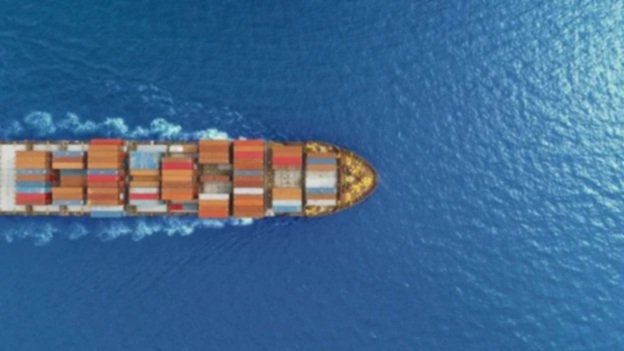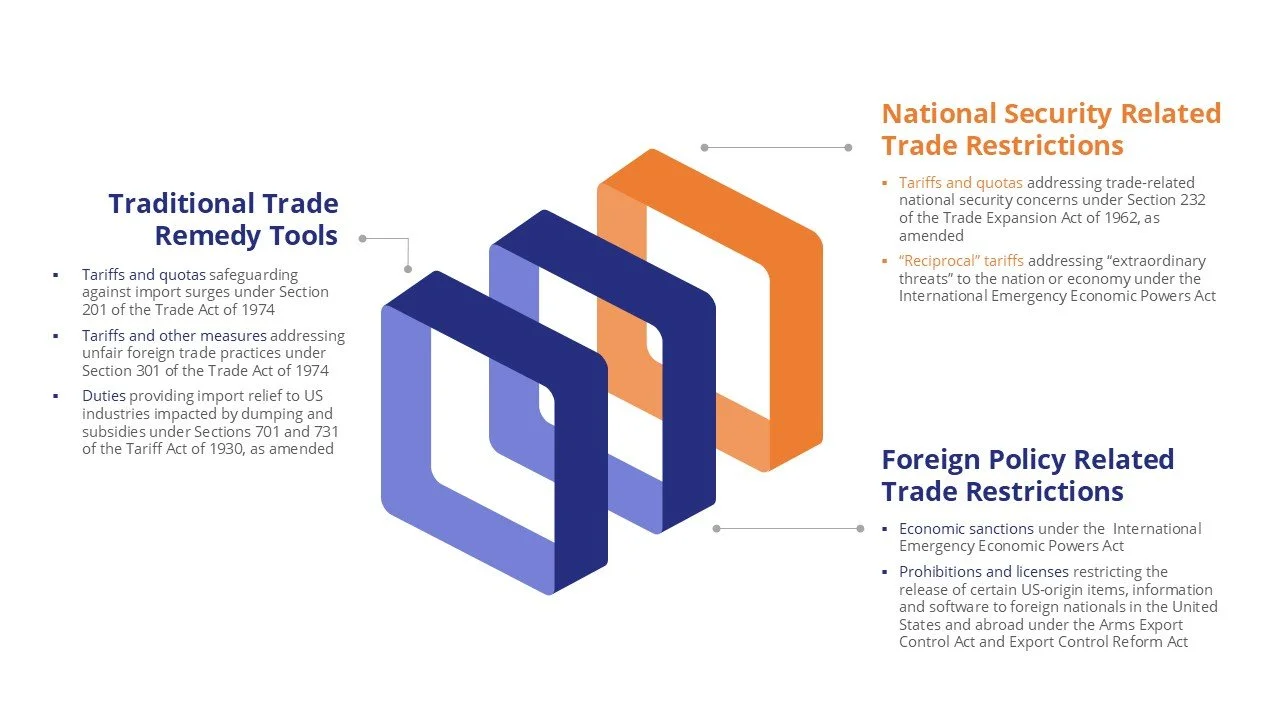
Overview
Vigilance on trade issues by US companies has rarely been so important as it is right now. US companies engage in more than $7.3 trillion in international trade annually, with more than 242,000 companies importing and more than 278,000 companies exporting goods alone. Add to that, the United States is embroiled in numerous trade disputes, jolting global markets almost daily, and the now 80-year-old global consensus on trade liberalization is being upended. The US Government has broad authority to regulate international trade transactions, powers that are enshrined in the US Constitution; delineated in federal statutes and regulations; administered by the President and a wide range of US Government agencies; and, subjected to judicial review, all of which is currently being tested.
The second Trump Administration came out of the gate quickly and aggressively on trade issues, pushing the limits of the global trading system. In an unprecedented move that was recently declared unconstitutional by the US Court of International Trade, the Trump Administration has invoked the International Emergency Economic Powers Act to substantially increase tariffs on most products from most countries by declaring that the US trade deficit is an economic emergency that must be addressed. The Trump Administration has also pioneered the use of a narrowly-focused national security-related law, Section 232 of the Trade Expansion Act of 1962, for authority to impose sweeping steel, aluminum and auto tariffs. These new “national-security” related trade restrictions are in addition to traditional trade remedy tools – such as imposing duties or quotas to address foreign dumping, subsidies or unfair trade practices or providing temporary relief to US industries being injured by increased imports – as well as foreign policy related trade restrictions – such as economic sanctions and prohibitions against selling military or dual-use products or technology to certain countries, entities or persons.
Given the range and complexity of the legal processes that can lead to these trade remedies, and the billions of dollars at stake, it is critical for US and foreign companies engaged in international trade to understand importing and exporting requirements and the impact that governmental policies can have on their businesses. This applies to companies named as individual parties in trade cases or included in broader proceedings such as safeguards or national security investigations, as well as those affected further downstream, such as US manufacturers that consume, as inputs, products subject to US tariffs; US exporters hurt by foreign retaliatory tariffs; and importers that could be liable for millions of dollars in retroactive duties, to name just a few examples.

